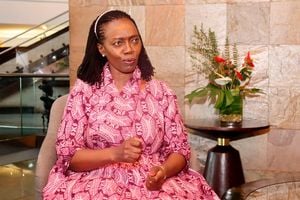Leaders must embrace public’s criticism

Mining, Blue Economy and Maritime Affairs Cabinet Secretary Hassan Joho
Public criticism of our leaders and institutions is often met with defensiveness and dismissal. Recent remarks from officials in the Executive, Judiciary and Parliament show just how disconnected some leaders are from the citizens they serve.
Mining Cabinet Secretary Hassan Joho’s now infamous quip, “Kenya will not be built on Twitter,” epitomises the government’s dismissive attitude toward public outcry on social media. While governance requires action on the ground, the assertion ignores the reality that platforms like Twitter have become a powerful megaphone for ordinary Kenyans, who use them to spotlight issues such as corruption.
Kenyans have turned to social media not because they enjoy ranting into the void, but because their cries for accountability often fall on deaf ears. From corruption scandals to poor service delivery, the frustrations aired online reflect deep-seated issues that demand attention. Twitter, Mr Joho, is not just a digital playground, it’s the people’s podium.
Meanwhile, in the Judiciary, the term “Jurispesa”— a biting critique of corruption in Kenya’s courts—has taken on a life of its own. Justice Isaac Lenaola has advised Kenyans to “ignore Jurispesa on Twitter”, but dismissing such criticism will not make it go away. The Judiciary is supposed to be the last bastion of hope for justice, so when Kenyans begin to doubt its integrity, we have a crisis. If there is nothing to hide, why not address these allegations transparently? Brushing off criticism as noise only feeds public mistrust.
Parliament has fared no better. Majority Leader Kimani Ichung’wah recently lashed out at Kenyans who threatened to send MPs home. Instead of dismissing citizens’ frustrations as threats, our MPs should focus on reconnecting with the people who put them in office.
Criticism is not an attack. It’s an opportunity. Leaders who listen and respond to public concerns with humility and action are the ones who build trust and leave a legacy. Kenyans are not asking for perfection, they are asking for accountability. They are asking for leaders who respect their voices, whether those voices are raised on Twitter, in courtrooms, or in the streets. Are our leaders willing to listen?
Ibrahim A Issack, Nairobi




